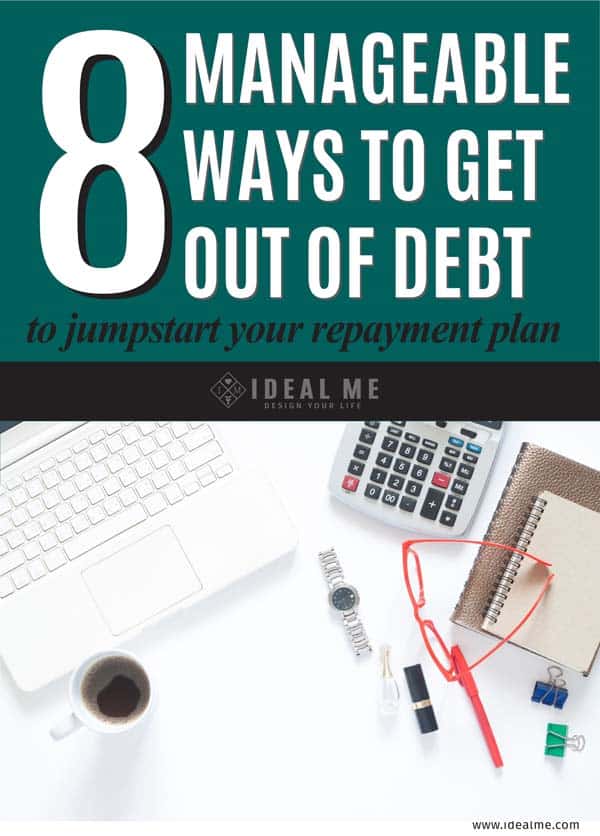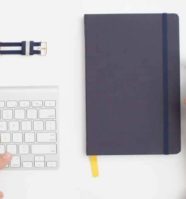
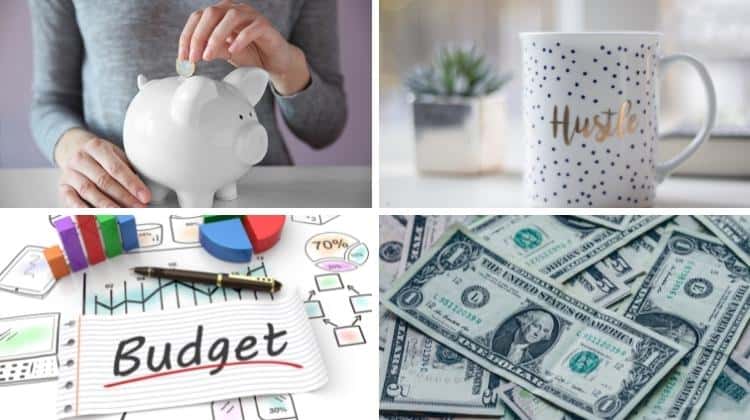
Debt is a reality for a lot of people, and it can be stressful, burdensome, and overwhelming. We also have a bad habit of normalizing debt in our society.
Failing to take control of your debt can have severe effects on your financial life from wrecking your credit to driving you to bankruptcy.
That’s why it’s so important to find manageable ways to get out of debt. It involves a lot of lifestyle changes, developing structured financial habits, and having the willpower to pursue the goal in mind. If you’re looking for ways to get out of debt, start with these 8 manageable strategies to jumpstart your debt repayment plan.
1. Hop On The Budget Train
Step 1 to getting your debt under control is knowing how much money is coming in and how much is going out.
I get it—when you have debt and your finances are a source of stress checking your bank account can induce serious dread. But you have to acknowledge your debts and your financial situation in order to start crawling out from under it.
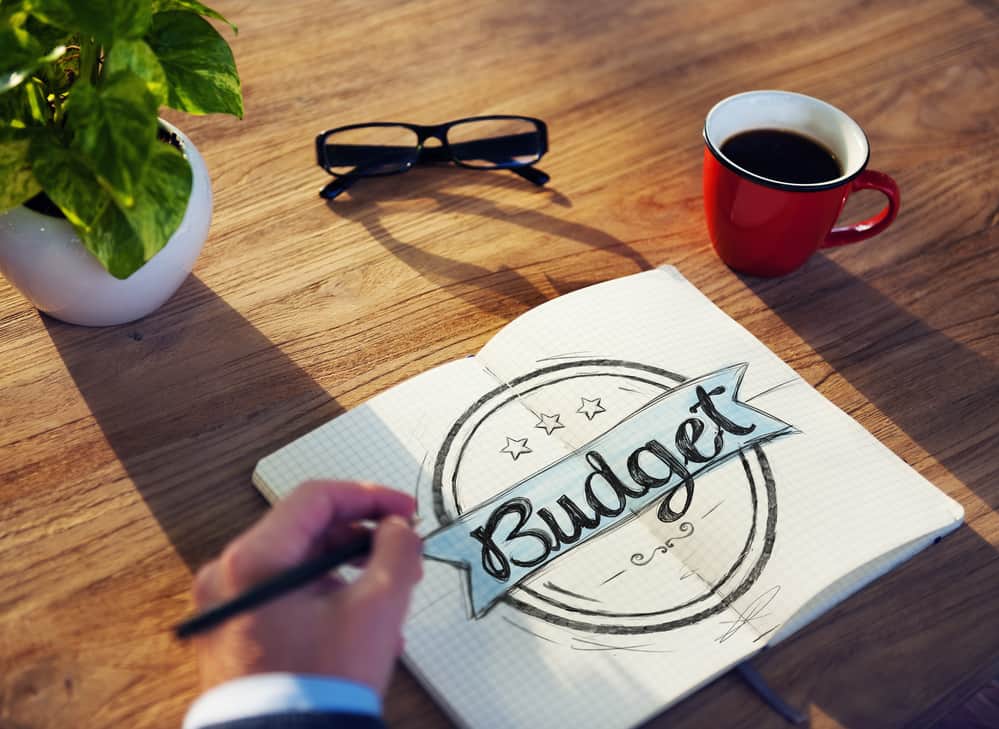
Acknowledge it so you can control it. The best way to get your debt under control is to budget. You can learn more about creating an easy to stick to budget here.
Budgeting will help you see how much you can afford to throw towards paying off your debt. Or it can show you areas where you can cut expenses and save more in order to contribute extra to your payoff efforts.
2. Get Frugal
When you’re working seriously to find ways to get out of debt, you want to throw as much as you can afford into that effort. The longer you pay, the more your interest accrues, so paying as much as you can afford will help you pay off debt manageably in a timely fashion.
When you look at your budget, try and identify areas in your life where you can reduce your expenses.
Are you eating out a lot? Maybe reduce that down to once a week.
Are you spending a lot on your car, insurance, entertainment? What steps can you take to reduce those expenses?
Can you carpool or take public transportation? Can you re-negotiate your insurance premium or find less expensive entertainment options? Maybe you can consider moving to a lower cost area or living with family for a while.
Think about how can you reduce your overall living expenses in order to net more savings that you can use to payoff your debt.
3. Get A Side Hustle
Sometimes we don’t always have areas where we can make significant expense cuts. This is especially true for those living on lower incomes in expensive areas. Rent is a certain price, ya know?
Cutting living expenses significantly isn’t always a possibility. Another option whether you can or can’t reduce expenses is to increase income.
Getting a side hustle is a great way to increase your overall income. A side hustle can be anything from freelancing and running an e-commerce store to driving for Uber or dog-sitting.
Work on your hustle after work or on the weekends and put that extra income towards paying off your debt. Paying more than the minimum payment can help you pay off debt faster and keep you motivated by seeing that number dwindle.
Learn more about picking your perfect side hustle here or learn to launch a profitable blog with our Launch A Blog In A Weekend program here.
4. Consolidate
If you have multiple student loans or outstanding debts, consolidating your debt may help you in your repayment efforts.
If you have multiple loans with different interest rates (like 7% and 9%), consolidating your debt can help you get a lower interest rate. You can also switch from a variable interest rate (changes with the market) to a fixed rate depending on your lender.
Consolidating your debt means you combine your overall debt so instead of having 3 (or however many) payments, you only have 1 monthly payment.
Consolidating your debt can help you see the bigger picture of your debt. But it isn’t for everyone.
Debt consolidation is still debt. It doesn’t change the amount you owe and it can’t magically help you break bad habits. You still have to make changes in your life to put money towards repayment, but some people find that having 1 payment feels more motivating and manageable than multiple payments.
It’s a personal decision, but if you’re interested you should speak to your lender to discuss your options.
5. Switch To A Cash Budget
Using a cash only budget, if only temporarily, can be helpful for keep spending on track.
If you have credit card debt or find yourself overspending when you use a card, a cash budget could help you develop structured spending habits.
Aside from fixed expenses that you need to pay via card or online such as rent, utilities, etc, use cash to pay for your expenses.
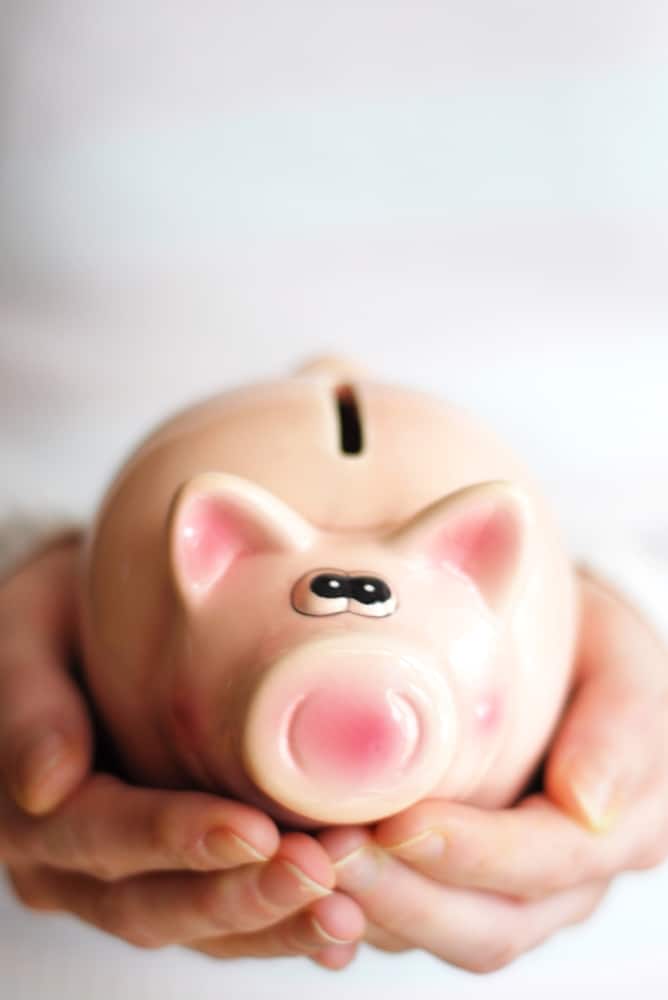
At the beginning of the month, withdraw a certain amount of cash (determined by your budget) and use it for your budgeted expenses like groceries or gas. Once you’ve spent all of your allotted cash, stop spending.
You can segment this further by putting a specific amount of cash in an envelope for each category of your budget. Have different envelopes and pre-determined amounts of cash for everything from food, entertainment, gas, miscellaneous or other expenses.
This can help bring awareness to your spending habits and help you stick to your budget so you can pay off your debt effectively.
6. Try the Debt Snowball Method
The Debt Snowball Method is a repayment technique aimed at emphasizing motivation to keep you on track.
The idea is to list your debts from the smallest amount to the largest amount. Then, you’ll pay as much as you possibly can on the smallest debt while maintaining minimum payments on your other debts.
When you pay off your smallest debt, you’ll free up income to put towards the next smallest debt and so on and so forth. This effectively snowballs until you’ve paid off all of your debt.
The idea is that by eliminating smaller debts you’ll become motivated as you pay off individual debts. Plus, it a manageable way to tackle multiple debts if you choose not to consolidate because it takes it one debt at a time while still making minimum payments on all.
7. Use “Bonus” Money Wisely
Raises, bonuses, tax refunds, birthday money—wherever it comes from, if you come into a little bonus cash, resolve to put it towards your debt.
Every little bit does count and adding in bonus money can help you continue to make a dent. It can also get you in the habit of prioritizing your debt.
It’s important not to deprive yourself when you pay your debt so that you feel restricted, but you also have to develop new habits aimed at making your debt a priority.
If you pay off a debt or make a huge dent, reward yourself with a latte or something small, but then put continue to develop habits that help you make your debt important in your financial life.
Using bonus money starts to get you in the mindset of viewing this cash as a means to accomplish a financial goal rather than as a reward for yourself.
8. Track Your Progress
Debt repayment can be a long, stressful journey sometimes. Tracking your progress can help you realize that you are making a dent in your debt and keep you motivated to keep going.
Calculate your monthly payments. How much have you paid off? Think about what you could do with that money once you’ve paid off the debt and no longer have monthly payments.
It’s nice to check in without our progress, big or small so that we assure ourselves that something is happening.
Whether you’re able to pay off your debt slowly or quickly, it’s important to create a repayment plan that’s sustainable and manageable while also making your debt repayment non-negotiable.
Want some debt repayment inspiration? Check out how this couple paid off over $20,000 in debt and find the motivation to start your own financial revolution.
